

Bryce Canyon National Park, located in Southern Utah, is a captivating wonderland of uniquely shaped and vibrantly colored rock formations.
There are so many things I love about hiking in Bryce Canyon! First of all, you don’t need to be an avid hiker to enjoy this park. Many Bryce Canyon hikes are short and easy, and you can enjoy a lot of amazing scenery from viewpoints next to the parking lots. Second, sunrises, sunsets, and stargazing opportunities are spectacular. Lastly, hiking in Bryce Canyon is beautiful in all seasons.
In this guide to the best Bryce Canyon hikes, I’ll cover the different opportunities for hiking in Bryce Canyon as well as essential trip planning information.
Bryce Canyon is a great addition to any Utah road trip itinerary! For more places to explore in Utah, browse my Utah destination guides.
About Bryce Canyon


Bryce Canyon Geology and History
Around 60 million years ago, what is now Bryce Canyon National Park was submerged beneath a lake. Within the park lie fossilized remnants of marine life, plants, and ancient mammals. Rivers and streams transported clay, silt, and sand into the lake, gradually depositing layers that were compressed over time. Erosion scuplted Bryce Canyon’s distinctive hoodoos from these sedimentary layers.




Hoodoos
Bryce Canyon is famous for its unique geological formations called hoodoos. Wind, water, and ice erosion carved these spire-shaped rock formations over millions of years.
Hoodoos consist of different sedimentary rock layers, including limestone, sandstone, and mudstone. These rock layers vary in hardness and resistance and erode at different rates, resulting in unique and non-uniform hoodoo shapes. Moreover, the hoodoos in Bryce Canyon showcase a vivid spectrum of colors, spanning from rich reds and oranges to softer tones of pink, yellow, and white. These colors are influenced by light conditions and appear to transform at different times of the day!




Amphitheaters
Bryce Canyon National Park comprises several natural “amphitheaters”, bowl-like formations carved by erosion and filled with hoodoos. These amphitheaters make for fantastic sunrise or sunset viewing locations, and several Bryce Canyon hikes will take you into the heart of them.


Bryce Canyon Hiking and Things to Do
Best Bryce Canyon Hikes
While you can see plenty of Bryce Canyon’s attractions from the adjacent parking lots, I encourage you to do a short hike or two. Walking through these surreal landscapes allows you to fully immerse yourself in the otherworldly beauty of Bryce Canyon.
If you need a refresher, check out my guide to day hiking.
Navajo Loop Trail
The Navajo Loop Trail is one of the most popular and best Bryce Canyon hikes. This trail spans 1.5 miles with 515 ft elevation gain and is moderately difficult. Plan on a much slower pace than usual, as you’ll want to pause frequently for photo opportunities.




The Navajo Loop starts at Sunset Point and takes you past iconic features such as Wall Street, Thor’s Hammer, and two natural bridges. Wall Street, characterized by its narrow switchbacks nestled between towering rock walls, offers a dramatic descent into the canyon. Note that Wall Street may occasionally be closed, so be sure to check current conditions before embarking on your hike. Even if inaccessible, the view from the top remains spectacular! Thor’s Hammer is another highlight of this route. This tall and slender rock formation resembles a hammerhead, complete with two distinctive perforations.
Navajo Loop Trail Map


Queen’s Garden Trail
From the Navajo Loop Trail, you can continue onto the Queens Garden Trail, which eventually takes you to Sunrise Point. The combined hike will be 3 miles with 652 feet elevation gain. On this Bryce Canyon hike, keep an eye out for Queen Victoria Rock, a majestic hoodoo bearing a striking resemblance to the profile of Queen Victoria herself.




When combining the Navajo Loop with the Queens Garden Trail, you’ll have to choose which section of the Navajo Loop trail to take. Whichever you choose, I recommend hiking at least the beginning of both sections to experience Wall Street and Thor’s Hammer.
Queen’s Garden Map
Peekaboo Loop
If you have time, combine the Navajo Loop and Queen’s Garden Loop with the Peekaboo Loop; this hike will be a total of 6.3 miles and 1,499 feet elevation gain. Since the Peekaboo portion of this route starts further from the parking lot, it receives fewer visitors. On this Bryce Canyon hike you’ll see additional hoodoo formations, including arch and window-like hoodoos called the “Wall of Windows” as well as the Peekaboo Arch.


Peekaboo Loop Map
Fairyland Loop
For a longer Bryce Canyon hike of moderate difficulty, I highly recommend exploring the Fairyland Loop. This trail offers equally stunning scenery as other popular trails but with fewer visitors, providing a more tranquil experience.


The Fairyland Loop is 7.9 miles with 1,555 feet elevation gain, and you can access the trail from one of the parking lots near Sunrise Point. Along the hike, you’ll encounter a diverse array of hoodoos, some resembling whimsical fairy-tale creatures, hence the name “Fairyland.” These surreal rock formations are colored in vibrant hues of red, orange, and pink, adding to the hike’s charm.
Fairyland Loop Map




Under the Rim Trail
For a more strenuous hike in Bryce Canyon, check out the Under the Rim Trail. This 22.4 mile route includes 4,366 feet elevation gain and runs from Rainbow Point to Bryce Point. This Bryce Canyon hike is rugged and remote, immersing you in pristine wilderness. You’ll need to obtain a backcountry permit if you plan to camp at designated sites along the trail.
Scenic Drive
The Bryce Canyon Scenic Drive is a route along Bryce Canyon Road, stretching from the park entrance in the north to the southernmost points at Rainbow and Yovimpa. Covering a distance of 18 miles (29 km), the drive typically takes around 40 minutes to complete. You’ll need a car to explore this route because the park shuttle doesn’t go further south than Bryce Point.


It’s best to begin your drive by heading all the way south, then stopping at various viewpoints as you ascend (parking lots for viewpoints are situated on the right side). Among the numerous viewpoints, I found Natural Bridge, Rainbow Point, and Yovimpa Point to be the most impressive. Some of the viewpoints are starting points for short hiking trails. The landscape of these Bryce Canyon hikes is different from those in the north, with scenery here showcasing where the red rocks meet the forest.




If you’re short on time or prefer not to drive further, you may want to focus on exploring the Bryce Amphitheater area instead. The Bryce Canyon hikes in that area are where you’ll find the quintessential hoodoo and amphitheater views. However, it’s worth noting that the scenic drive tends to be less crowded than the Bryce Amphitheater area, offering a more serene experience.


Sunrises and Sunsets
When planning your Bryce Canyon hikes, make sure to include a sunrise or sunset, when the hoodoos are bathed in stunning light. The best part? You can enjoy these breathtaking views from the trailheads right next to the parking lots! While both sunrise and sunset offer incredible displays, sunrise tends to showcase more vibrant colors, and Bryce Canyon’s orientation means you’ll witness the sun rising directly over the hoodoos.


The prime locations for sunrise and sunset viewing are Sunrise Point, Sunset Point, Inspiration Point, Bryce Point, and Paria View. During my trip, I experienced a mesmerizing sunrise at Sunrise Point. On another day I checked out Bryce Point for sunrise, but in retrospect I might have gone to Sunset Point instead. I visited Sunset Point just after sunrise, and the scenery there was captivating with the golden morning light. For sunset, I visited Inspiration Point and Paria View. Both locations lacked crowds and were a peaceful place to end the day.


When viewing the sunrise or sunset, remember to dress warmly and bring gloves. Bryce Canyon gets chilly once the sun goes down. Arriving 15-30 minutes before sunrise or staying 15-30 minutes after sunset ensures you catch the most vibrant colors and will help you secure a good viewing spot amidst any crowds.


Stargazing and Hiking Bryce Canyon at Night
Bryce Canyon National Park is renowned for its dark skies, thanks to its high elevation, clean air, and remote location. These factors create the perfect conditions for stargazing! For a unique experience, check out the full moon hikes offered by the Bryce Canyon Visitor Center. If you’re a moderately experienced hiker, I think you could tackle a full moon hike independently as well, thanks to the easy terrain and well-marked trails of Bryce Canyon’s hikes. Make sure to bring a good headlamp.


Bryce Canyon Hikes in Winter
You can visit Bryce Canyon year-round, and the park takes on a magical winter wonderland feel when dusted with a layer of snow. If you want to explore the snowy trails, bring appropriate gear for winter hiking and cross-country skiing.
Hikes Near Bryce Canyon
When traveling to Bryce Canyon, you’ll drive through Utah’s Scenic Byway 12, renowned for its stunning vistas and diverse landscapes. Along this route, don’t miss Red Canyon Arch, which consists of two tunnels carved into red rock.


Red Canyon is a 20 minute drive from Bryce Canyon, offering a quieter alternative with its network of hiking and biking trails. I saw just one other visitor there during my trip! Start at the Visitor Center, where you can embark on short trails like the Pink Ledges Trail, showcasing pink-colored cliffs, or the Hoodoo Loop Trail, offering views of unique rock formations. For a longer adventure, try the Bird’s Eye Trail for panoramic vistas.


For more hiking and outdoor adventures near Bryce Canyon, check out Grand Staircase-Escalante National Monument, just a 30 minute drive away. Also consider extending your Utah adventure with a trip to Zion National Park, only a 2 hour drive from Bryce Canyon.
Useful Tips for Bryce Canyon Hikes
Limited phone service. Expect limited to no phone service in Bryce Canyon’s hiking areas. Download Google Maps of the area and hiking trail GPS information in advance.
Beat the heat. Start hiking early in the morning to avoid the heat, especially in summer. Much of the trails in Bryce Canyon are exposed to the sun.
Leave no trace. Let’s keep this park pristine.
Check trail conditions. The park is open year-round, but be mindful of snow and ice on the trails in winter. Check current conditions before heading out.


How Long to Stay
You can see the highlights of Bryce Canyon National Park in a day. Add another day to catch an additional sunrise or sunset and to explore the area more thoroughly.
Bryce Canyon Weather and When to Go
Bryce Canyon’s high elevation (8,000 – 9,000 ft) means that temperatures are cooler compared to nearby parks like Zion. Summers bring warm days and cool nights, while spring and fall offer mild days with chilly nights. Winters see significant snowfall and cold temperatures, often dropping below freezing at night. For more information, refer to the National Park Services page on weather in Bryce Canyon.
Weather-wise, the park remains pleasant to visit year-round. If you don’t like crowds, street clear of high season (June to September). Shoulder seasons (April, May and October) offer mild weather with fewer crowds, along with lower accommodation prices.
For winter visits, be prepared to drive in winter conditions. Bring appropriate gear like skis, snowshoes, or traction devices if you plan on exploring Bryce Canyon’s trails. Note that some roads may be closed due to weather; always check current conditions before heading out.


Park Information
Bryce Canyon entrance is $35 per car, paid at the kiosk on the road leading to the park. You can use your US National Parks pass or purchase one there for $80.
Dogs and pets are not allowed on Bryce Canyon hikes; they are only permitted on paved surfaces in the park (see more information here).
You don’t need any permits for general visits and day hiking in Bryce Canyon. However, for multi-day hiking and camping trips, you will need to obtain a backcountry permit.


Bryce Canyon Directions and Parking
Bryce Canyon is located in Southern Utah, and the closest town is Bryce Canyon City. The park is a 4 hour drive from Las Vegas, or 4.5 hours from Salt Lake City.
For access to most Bryce Canyon hiking trails, drive past the Visitor Center and head to one of the parking lots near Sunrise Point or Sunset Point. Note that parking can fill up quickly during peak seasons, so it’s advisable to arrive early or utilize the shuttle service.
The shuttle is free and runs from April to mid-October. While not mandatory, using the shuttle allows you to park your car in Bryce Canyon City and avoid concerns about parking availability within the park. Additionally, it helps alleviate congestion and reduce pollution.


What to Bring When Hiking in Bryce Canyon
The hiking trails in Bryce Canyon are well-maintained and don’t include any technically challenging terrain, so basic hiking gear is sufficient. However, remember to bring appropriate layers! Bryce Canyon is at high elevation and can get chilly.
Also, pack some hiking snacks; there are only a few small general stores nearby with limited selection. Keep in mind that dining options are also very limited. I personally struggled to find healthy and vegetarian options.
Below, I’ve listed some of the essential items you should bring with you on your Bryce Canyon hiking trip. For more hiking gear and non-perishable snack recommendations, check out my day hiking checklist.
- Trail Map. Download maps for offline navigation.
- Day Hiking Backpack. Invest in a high-quality and durable pack that will last for years!
- Hiking Shoes. Women’s, Men’s. I do not recommend running or general athletic shoes for Bryce Canyon hikes. Their lack of traction will cause you to slip.
- Hiking Socks. Women’s, Men’s. Wool is essential to keep your feet dry and blister-free.
- Hiking Pants. Women’s, Men’s. I love these pants because they are lightweight, durable, and have pockets.
- Hiking T-Shirt. Women’s, Men’s. Quick-drying T-Shirts are ideal. Tank tops will cause your skin to rub uncomfortably against your backpack straps.
- Lightweight Long-Sleeve Shirt. Women’s, Men’s. This is the best way to protect yourself from the sun.
- Puffy Jacket. Women’s, Men’s. Bryce Canyon gets cold in the morning and in the evening.
- Gloves. Keep your hands warm when waiting for sunrise or sunset.
- Hat. Most hikes in Bryce Canyon are very exposed, so protect yourself from the sun.
- Sunscreen.
- Lip Balm with SPF.
- Electrolytes. These help prevent dehydration and fatigue, especially on strenuous hikes in hot weather.
- Water in a Reservoir or Bottle.


Where to Stay
Bryce Canyon Camping
There are two campgrounds within Bryce Canyon National Park: North and Sunset. Additionally, there are camping options available outside the park.
North Campground is open year-round, and Sunset Campground is open seasonally. During shoulder and low seasons, campsites are available on a first-come, first-served basis, while reservations are required during high season.
Hotels Near Bryce Canyon
For lodging within the park, look into Bryce Canyon Lodge. Accommodations near Bryce Canyon are limited, so check availability and make reservations well in advance, especially during peak season.
Splurge:
Best Western PLUS. A luxurious hotel with full amenities right next to the park.
Under Canvas Bryce Canyon. Stay here for a unique glamping experience!
Mid-range:
Bryce Vistas
Budget:
Bryce Canyon Pines
Bryce Pioneer Village


Thanks for reading, and I hope this guide to Bryce Canyon hikes was helpful! Which Bryce Canyon trail are you most excited about? Let me know your thoughts and questions in the comments. Happy trails!
For more places to explore, check out my guides to other hikes in Utah.
Confirm all logistical and safety information before your trip. Also If you buy through links on this site, I may earn an affiliate commission. Thanks for supporting me in creating free content for you to enjoy!
Save this post for later and share on Pinterest!
HIKING TRIP RESOURCES
Head to my Travel Resources Page for more recommendations.
Hiking Checklist and Backpacking Checklist. Make sure you have everything you need before heading out.
Viator and Get Your Guide. If you don’t want to hike or camp alone, there are various organized tours you can join, ranging from day trips to multi-day excursions.
Booking.com. This is my go-to platform for booking accommodation since it consistently gives me competitive prices and additional discounts based on usage.
LifeStraw. This easy-to-use water filter guarantees that you always have access to clean drinking water.
Travel Credit Card. Earn substantial points for travel-related expenses and a very generous bonus when opening an account.
Comments
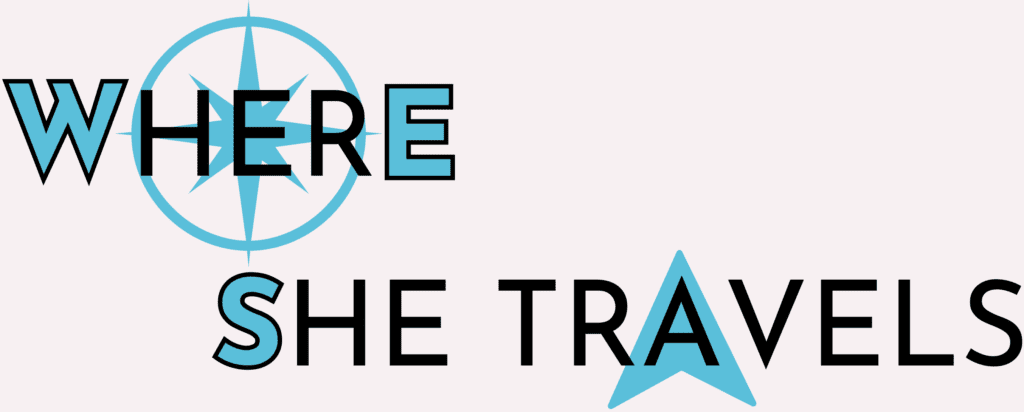



Hi, I’m Kristina! I’m a solo female traveler sharing my personal experiences around the world. Authentic travel is important to me; in my destination guides I emphasize not just the most spectacular sights but also the local stories and history.
Other things I’m passionate about are discovering hidden gems, budget-friendly travel, and hiking and backpacking. My goal is to show you how to seek adventurous experiences for yourself!


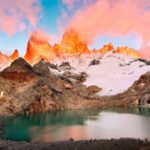
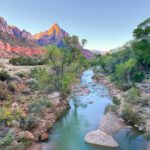
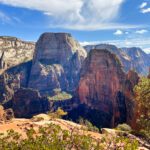
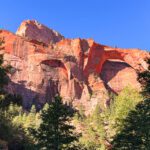
Leave a Comment